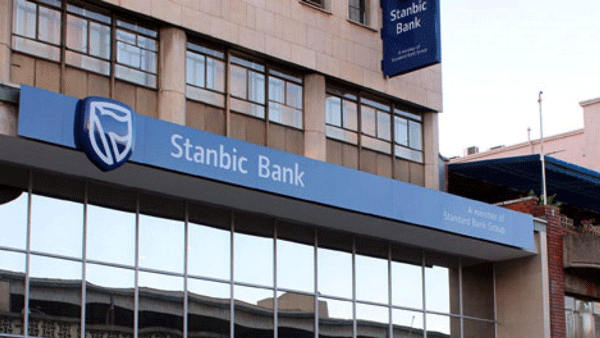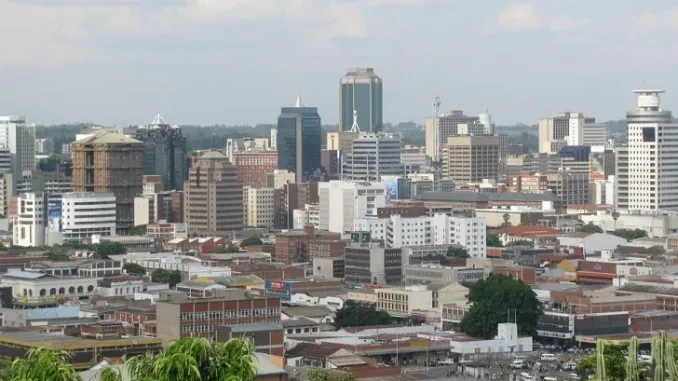
BY BUSINESS REPORTER Stanbic Bank has shrugged off the adverse effects of COVID-19 to post an inflation adjusted profit after tax of $5,2 billion for the year ended December 31, 2021, up 185% from $1,8 billion in the prior year.
Inflation adjusted net interest income surged by 206% from $2,7 billion in 2020 to $8,1 billion, underpinned by improved growth in average interest earning assets.
The bank recorded a 72% increase in net fee and commission income, which grew from $4,2 billion in 2020 to $7,3 billion.
Inflation adjusted operating expenses grew by 3% from $8,6 billion in 2020 to $8,9 billion during the review period, driven by once-off costs which were incurred as the bank completed its staff optimisation programme.
Stanbic chairperson Gregory Sebborn said the bank ended the year with a core capital of $11,3 billion, up from $3,8 billion in 2020.
“The outlook remains somewhat uncertain due to currency instability, the COVID-19 pandemic and the growing inflationary pressures. However, the bank will continue to ensure that strategies are in place to mitigate the possible negative effects of these factors,” Sebborn said.
Chief executive officer Solomon Nyanhongo said the year was difficult due to COVID-19, which saw a blanket lockdown being imposed during first two months.
“The relaxation of the lockdown conditions led to an uplift in the volumes of transactions which were passing through our various service channels. However, the persistent foreign currency shortages on the foreign currency market impacted negatively the level of trading activity resulting in depressed trading revenue,” Nyanhongo said.
- Chamisa under fire over US$120K donation
- Mavhunga puts DeMbare into Chibuku quarterfinals
- Pension funds bet on Cabora Bassa oilfields
- Councils defy govt fire tender directive
Keep Reading
Sebborn said the global economy continued to recover, despite the ongoing COVID-19 pandemic. He said the Zimbabwean economy was also positioned to benefit from the growing trade prospects arising from the positive global economic outlook. The Zimbabwean economy grew by an estimated 6% in 2021 buoyed by a good rainfall season which resulted in improved agricultural output.
The growth momentum is expected to progress into 2022, with forecasts ranging from 3% (IMF) to 5% (government). Mining and agriculture are envisaged to be the key growth drivers during 2022.
“Notwithstanding the positive GDP outlook for 2022, we remain cautious of the following potential business risks: Erratic rains which could reduce productivity for non-irrigated crops; The COVID-19 pandemic, especially given that the nation’s vaccination levels stand at below 25% of the population; Currency instability caused by excessive money creation but manifesting in hyperinflation and a dislocation between the foreign currency auction rate and parallel rates, as well as inefficiencies on the foreign currency auction system, leading to external payments backlogs; Longer power cuts due to frequent breakdowns at the thermal power plants.” Said Sebborn.
He noted that annual inflation, which had decelerated to 50,2% in August 2021, has been creeping upwards since then, reaching 60,7% by December 2021.
The resurgence of inflationary pressures indicate that value and capital preservation will remain critical in the outlook period.
Nyanhongo said Stanbic Bank believes that a better community will be built if every member of society commits to helping the community.
To that end, Stanbic Bank continued to support members of the community with diverse needs such as educational support (be it construction of school blocks, bursaries, tuition or fees); health support, contributing to environmental awareness, among many others.
In 2021, the Bank continued to support the Albino Charity Organization of Zimbabwe’s (“ALCOZ”), as their needs remain critical because the beneficiaries greatly depend on the skin protection soaps and lotions for their day-to-day activities.
“We supported ALCOZ with 1 000 units of each of the following necessities: sunscreen lotions, antiseptic soaps, antiseptic liquid, sunhats and lip balms…Education remains key for sustainable social investment, therefore, in addition to our ongoing bursary program for tuition fees and laptops, we partnered Africa University to support five more students from their university. We are looking at adding more primary and secondary students countrywide. Furthermore, the construction and furnishing of a block of two classrooms at Nyarutombo Primary School in Muzarabani was completed. Toilets and a borehole to serve both the school and the community were also part of this development as we contributed in assisting the school to achieve examination centre status, relieving Grade Seven students from the current 20 km walk to the nearest examination centre,” said Nyanhongo.











